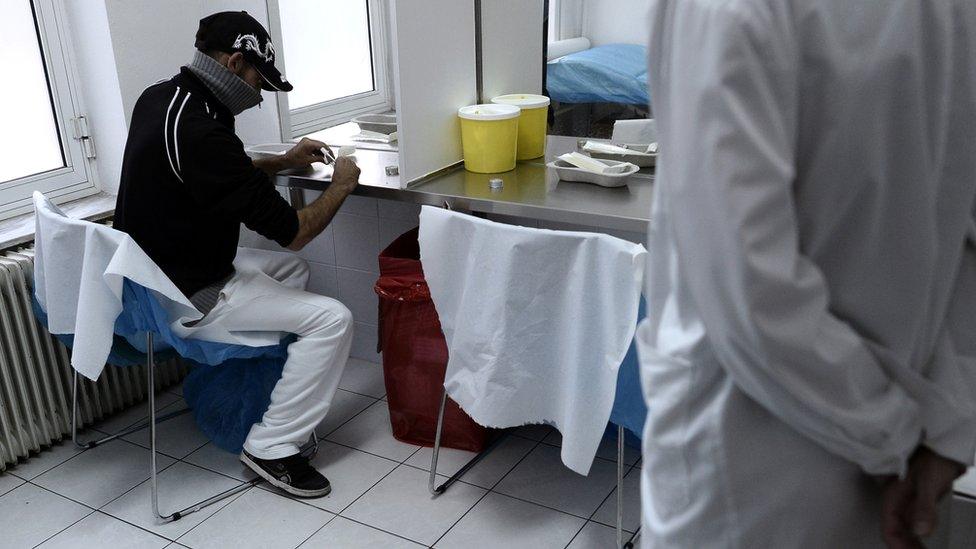Drug and alcohol rehab referrals concerns Brynawel Rehab boss
- Published
'I'd have my first line after breakfast,' said rehab patient
People are dying because they are not getting the treatment they need to deal with drug and alcohol abuse, according to the Welsh Conservatives.
Brynawel Rehab in Rhondda Cynon Taff is not getting the referrals needed from councils to be cost-effective.
The only Welsh Government-approved residential rehabilitation centre is operating at 60% capacity.
The government said £1m was being allocated this year specifically to support residential detox and rehab.
Brynawel, in Llanharan, is a charity which gives residential support and therapy to help people with complex drug and alcohol problems - many who have experienced trauma or difficult childhoods.
Last year, only 60% of its 20 beds were occupied.
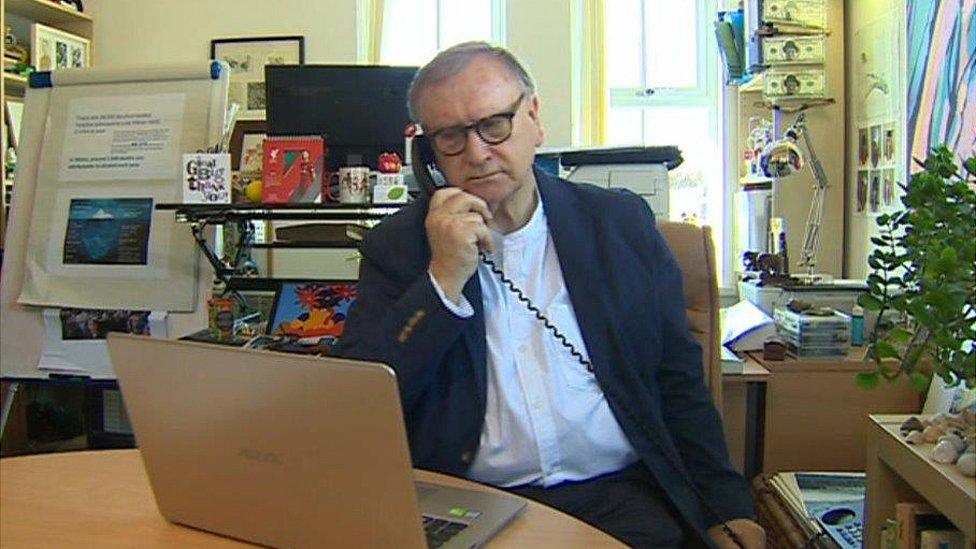
David Richards wants to know why Brynawel Rehab is sometimes only half full
"You can go through whole periods of the year when you only have half the beds filled," said Brynawel Rehab chief executive David Richards.
"The kind of clients we're treating here are at the much more extreme end - they've been drinking for 10 or 20 years, their mental health is much more complex. So having a meeting with a counsellor once a fortnight is not going to touch the sides."
But he is surprised not to have had referrals from areas including Swansea.
"How is that possible? Are there not alcohol dependent people in Swansea? We know there are drug dependent people. We think that the pathway into rehab is broken, not the service itself."
BBC Wales was given special access to speak to some of the patients at Brynawel.
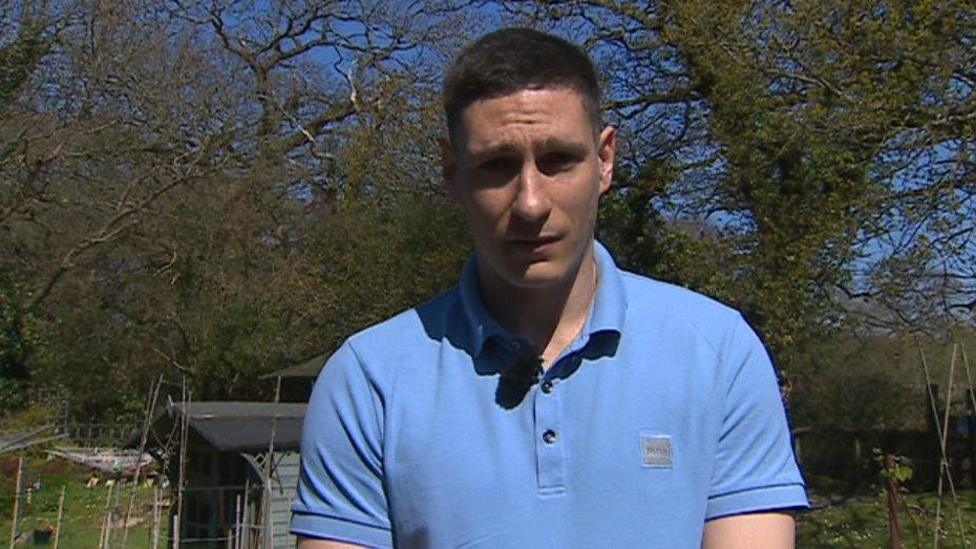
Jon Hardisty said he 'felt great' to be off drugs and alcohol for the first time since he was a child
'I've learnt to be around myself without drugs'
Jon Hardisty, 30, had to wait 12 months for funding from Monmouthshire Council to attend Brynawel.
While waiting, he became so desperate to get off drugs, he resorted to stealing in order to try to be taken into prison.
He had been using drugs since he was 12 years old, and he had undiagnosed ADHD until he was 18.
Jon said Brynawel had taught him how to relate to other people and get in touch with his emotions - and he has now been off drugs for nearly five months.
"I've learnt to be around other humans without drugs," he said. "I've learnt to be around myself without drugs.
"I've learnt to get in touch with my emotions, regulate my emotions, deal with my emotions, good and bad; accept the fact that there will be ups and downs, to get in touch with the real me, rather than the act I used to put on to attack the world.
"I've learnt that not everyone is out to get you and there are good people out there and that I'm OK as I am."
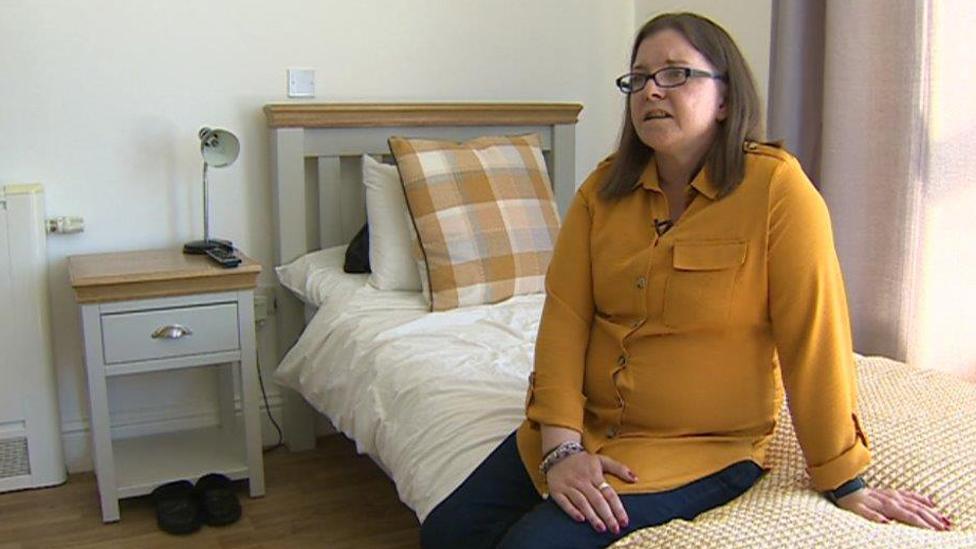
Hannah lost numerous jobs and her home over her alcoholism
'Without Brynawel I would be dead'
Hannah Greenhouse, from Pembroke, has recently been diagnosed with a mental health condition called emotional dysregulation which has symptoms like bipolar disorder.
"Without Brynawel I would be dead, or on the way to death. To outsiders I had a normal life, I wore a suit every day to work and I was functioning, just."
But she said she would binge drink - vodka by the bottle - depending on her mental health. When she felt very happy or very low, her binges could last from two days to two weeks.
She said it was like self-punishment. Hannah is now taking medication to deal with her mental health disorder and feels like she is ready to tackle her alcohol dependency.
She added: "I'm not under an illusion that I'm going to come out of here cured or a quick fix, it's not.
"It's giving me the tools, through the DBT - the group therapy - and the one-to-ones, so I can go out into the outside world and start using the tools to get on with the rest of my life."
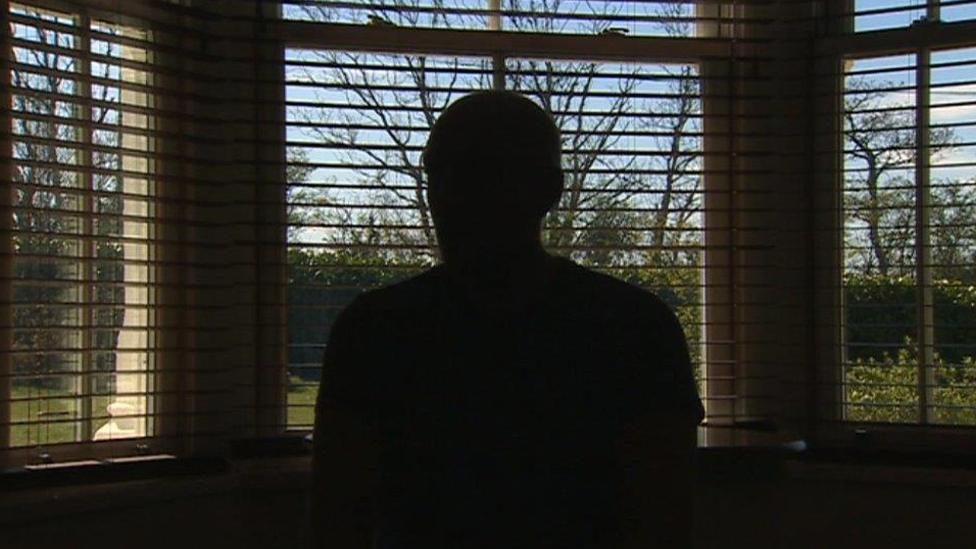
Tim worked in IT in London and was a cocaine addict
'I was taking it every 45 minutes, every waking hour'
Tim - not his real name - is originally from Aberystwyth but has been working in London. He is self-funding his stay at Brynawel after his cocaine use spiralled out of control. It costs £850 a week.
He said: "I'm really grateful that I've been able to get a space here because it's saved my life."
Tim said he has uncovered childhood trauma since he has been there and can now see that his drug use was a way of dealing with his complex emotions.
"I'd have my first line after breakfast. I'd have a timer on my phone - 45 minutes - because I didn't want to be taking it too often.
"It sounds absurd now, so I was taking it every 45 minutes, every waking hour that I had until I put myself to sleep with some ketamine and some valium.
"Essentially, what I think characterises addiction is that you're doing something, and it's having a detrimental impact on your life, but you're doing it anyway."
'The programme here is so intense'
"Sue", now in her 50s, suffered trauma as a child from an abusive stepfather. She began to drink and tried different methods to tackle her alcohol issues for more than 16 years but said coming to Brynawel "has changed my life...it's saved my life as well".
"This place looks at why you're drinking and it doesn't just take the drink away," she said.
"The programme here is so intense, you are working from 7am until 8 at night. It's holistic, you're eating healthy and you have a routine.
"And once that's in place, you then start looking at what's going on inside. And then they start teaching skills to give you the tools to help you deal with the trauma that's happened to you."



Figures from the Office for National Statistics suggest there has been a continued increase in the number of alcohol-related deaths and a sharp increase in the number of drug-related deaths in recent years.
Mark Isherwood, Conservative AM, said he has been highlighting this issue with the Welsh Government for more than 10 years.
"If you have increasing numbers of people dying through drug abuse or alcohol then the system is getting it wrong," he said.
"That won't do, because people are being hurt, people are dying, and people are suffering - not just individually, but their communities."
A Health Inspectorate Wales report, published last year,, external highlighted many of the issues raised by Mr Richards and Mr Isherwood.
While people were said to be happy with the treatment they received, they had "difficulties in accessing these services due to long waits and limited funding for placements".
The report recommended the Welsh Government should improve the equity and availability of provision but so far nothing has been done.
Mr Richards is looking for reasons for Brynawel's low referral rate and also wants to know where the £1m ring-fenced money for rehabilitation from Welsh Government is being spent, despite praise from the health minister for the work it does.
The Welsh Government said: "This year we have committed more than £50m to ensuring people have the right help and support they need to deal with the impact of substance misuse - £1m will specifically support residential detox and rehab.
"Around half of this funding - £25m - goes directly to our area planning boards, which are responsible for assessing, commissioning and delivering substance misuse services. They commission services in line with clinical guidelines and with input from service users.
"Organisations like Brynawel Rehabilitation provide a valuable service and help people with substance misuse issues."
- Published19 March 2019

- Published6 December 2018
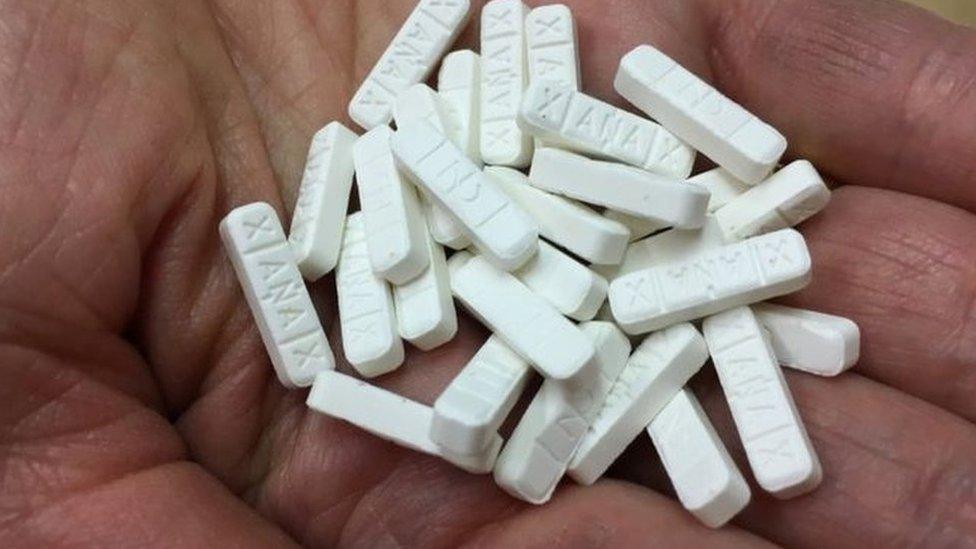
- Published3 August 2018

- Published10 June 2018
